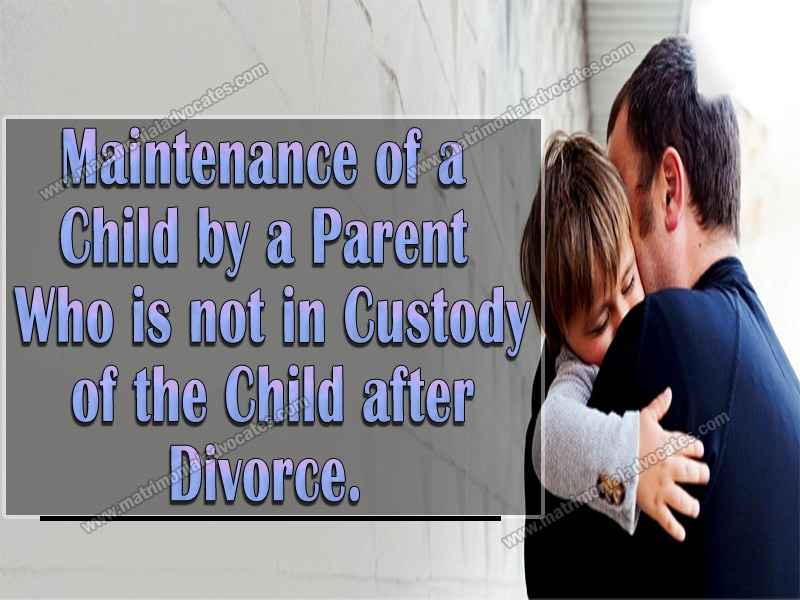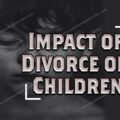
In India as per law, a child is a human being below the age of 18 years. When a marriage terminates by way of divorce in India and there are issues born out of the wedlock (children born out of the marriage), it is the foremost duty of the parents to ensure the welfare of the child and also to ensure which parent would assume the custody of the child post the separation and in which proportion, the varied expenses pertaining to the child would be shared in between the spouses.
When the above arrangement is not amicably and mutually decided between the husband and wife, then it results in filing of legal proceedings for the custody of the child.
The priority in the child custody battles is the welfare of the child and it is upto the Court to see which of either of the parent can ensure the welfare of the child in better manner.
It is noteworthy that in a recent judgment passed on 20/02/2020 the Hon’ble Supreme Court has held that in a custody battle the child is always the loser, no matter which parent wins.[1]
In an unfortunate event of divorce neither of the party ceases to be the natural guardian of a child and has equal responsibility to maintain the child. Divorce only means the termination of the marital relations between two individuals and has no effect upon their duties towards the children born out of the wedlock.
Both, a Hindu divorcee father and a Hindu divorcee earning mother are obliged to contribute for maintenance of their children under the Hindu Adoption and Maintenance Act, 1956. Father is not exclusively responsible to maintain children regardless of mother being affluent.[2]
By way of the ruling in Ganesh vs Sudhirkumar Shrivastava[3] the Supreme Court by invoking it’s power under Article 142 of Constitution of India held that it is the discretion of the wife to renounce or give up the right of permanent alimony or stridhan but she can not give up the right of maintenance for the daughter after divorce from her ex husband.
While the statutes are conflicting when it comes to personal laws as opposed to secular enactment in the form of The Guardian and Wards Act, 1890, the court of competent jurisdiction strives to strike a balance between the two, all the while holding the welfare of the child as the paramount importance. However, just because the custody of a minor has been awarded to one parent, it does not mean that the other parent cannot see or be in contact with the child. The courts in India are very strict to ensure that a child gets the affection of both the parents. The other parent gets visitation rights, the conditions of which are determined by the court.
Types of child custody arrangements in India
Primarily, a court of competent jurisdiction in India orders the custody of a child in the following three forms :-
Physical Custody
Physical custody when awarded to a parent, implies that the minor will be under the guardianship of that parent with visitation and periodical interaction with the other parent. The aim behind such a custody award is that the child lives in a safe and fulfilling environment but is also not deprived of the affection of the other parent during his formative years.
Joint Custody
Joint custody of a child does not mean that the parents will both live together because of the child even though that what Indian courts believe is best for the welfare if a minor. It simply means that both the parents will take turns keeping the child in their custody. The rotation of a child between the parents’ custody may vary from certain days or a week or even to a month. This not only benefits the child as the affection of both the parents is not lost and the parents also get to be a part of their child’s life in those young years.
Legal Custody
Legal custody of a child differs from physical custody in more ways than one but the fundamental difference between the two is that legal custody does not necessarily entail having the child with you or being with your child at all times. Legal custody of a child basically means that the parent granted the legal custody takes every decision for the child. From where will the child study and what doctor will the child be treated by is part of legal custody. In most instances, courts grant legal custody to both the parents together but if the divorce is messy and the parents are, apparently, never going to agree with each other, the court grants the legal custody of the child to one parent.
Legal provisions for maintenance of child
As already discussed above that divorce only means the termination of the marital relations between two individuals and has no effect upon their duties towards the children born out of the wedlock.
Hence a parent who is not in custody of the child after divorce is supposed to maintain the child in accordance with the below legal provisions.
- Before filing a petition for mutual consent divorce the husband and wife are supposed to sort out the issue of custody of child among themselves and reduce the same into writing then only the Court can pass a decree of divorce by mutual consent.
- Under Section 12(1) of the Family Courts Act, 1984 the Court has the power to pass an interim maintenance order where an amount has to be paid for protecting the interest of the minor child and ensuring his / her welfare.
- Section 26, Hindu Marriage Act – During the proceedings under the Act, the court may pass orders with respect to the custody, maintenance, and education of minor children. Under this Act, both parents (father as well as mother or either of them) are liable to maintain the children as ordered by the court. While making such orders, the court takes into account wishes of the children, as far as possible. Such orders and provisions may be altered from time to time. Any application in respect to maintenance and education of minor children during pendency of proceedings under the Act has to be decided within sixty days from the date of service of notice on the respondent, as far as possible.
- Section 20, Hindu Adoption and Maintenance Act, 1956 – A Hindu male or female is bound to maintain his or her legitimate/ illegitimate minor children if they are unable to maintain themselves. Section 23 sub-section (2) states that while determining the amount of maintenance to be awarded to children the court shall consider the following:
- position and status of the parties;
- reasonable wants of the claimants;
- if the claimant is living separately, whether the claimant is justified in doing so;
- claimants income and value of property held by him, if any.
- Under the Section 125, Code of Criminal Procedure, 1973 a parent is supposed to maintain the following :-
- his legitimate or illegitimate minor child who is unable to maintain itself; or
- legitimate or illegitimate major child (not being a married daughter) unable to maintain itself due to any physical or mental abnormality/injury; or
- married daughter till she attains majority if her husband is not able to maintain her.
- The father is obliged to maintain her unmarried daughters even if they are living separately with their mother[4]
- Section 3, Muslim Women (Protection of Rights on Divorce) Act, 1986 – A divorced Muslim woman is entitled to a reasonable and fair provision and maintenance for children born to her for a period of two years from the respective dates of birth of such children. It does not matter if the children were born before or after the divorce, the former husband is liable to pay maintenance. If the former husband fails to comply with the order passed by Magistrate without showing sufficient reason, he may have to suffer imprisonment up to one year.
Conclusion
- The welfare of the child is utmost important in the child custody battles by the Court if the to be divorced couple fails to amicably decide the same.
- The duty to maintain the child after divorce is casted upon both the parents irrespective of fact that the custody of the child is with which parent.
- Even after divorce, a parent does not ceases to be the natural guardian of the child.
- When either of the parent is making defaults in maintenance of child, the other can take legal recourse in form of contempt proceedings against the defaulting parent by instituting a proceeding in his / her name or in the name of child.
- In order to execute a maintenance order a proceeding can be filed against the defaulting parent.
[1] Judgment passed by the Hon’ble Apex Court of India through a bench comprising of HMJ AM Khanwilkar and HMJ Ajay Rastogi.
[2] Padmja Sharma v. Ratan Lal Sharma, (2000) 4 SCC 266.
[3] Ganesh vs Sudhirkumar Shrivastava , Civil Appeal No.4031-4032 OF 2019. Verdict pronounced by the Hon’ble Supreme Court on 22 April, 2019 through bench comprising of HMJ UU Lalit and HMJ Indu Malhotra.
[4] Jasbir Kaur Sehgal v. District Judge, Dehradun, (1997) 7 SCC 7.





